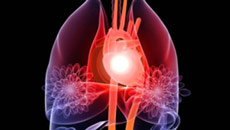Making and improving medical drugs could soon become as easy for chemists as stacking blocks is for a child.
Thousands of compounds in a class of molecules called polyenes - many of which have great potential as drugs - can be built simply and economically from a scant one dozen different building blocks, researchers found.
Once you have the pieces in a bottle, you can make naturally occurring molecules, or you can change the pieces slightly to make them better, said Martin Burke, a chemistry professor at the University of Illinois in the US.
“Usually, that is such a herculean task that it slows down research. But if that part becomes on-demand, you can make anything you want, and it can powerfully accelerate the drug discovery process,” Burke added.
In the same way that plastic building blocks of different sizes and shapes can snap together because they share a simple connector, the chemical building blocks are linked together with one simple reaction.
This gives scientists freedom to build molecules that may be difficult or expensive to extract from their natural source or to make in a laboratory.
One advantage of the building-block approach is that it allows the researchers to mix and match parts to build many different molecules, and to omit or substitute parts to make a potentially therapeutic substance better for human health.
The researchers recently synthesised a derivative of the anti-fungal medication amphotericin.
It led to a big breakthrough in understanding how this clinically vital but highly toxic medicine works and the discovery of another derivative that is nontoxic to human cells while still effective at killing fungus, the study maintained.
The researchers published their findings in the journal Nature Chemistry.





